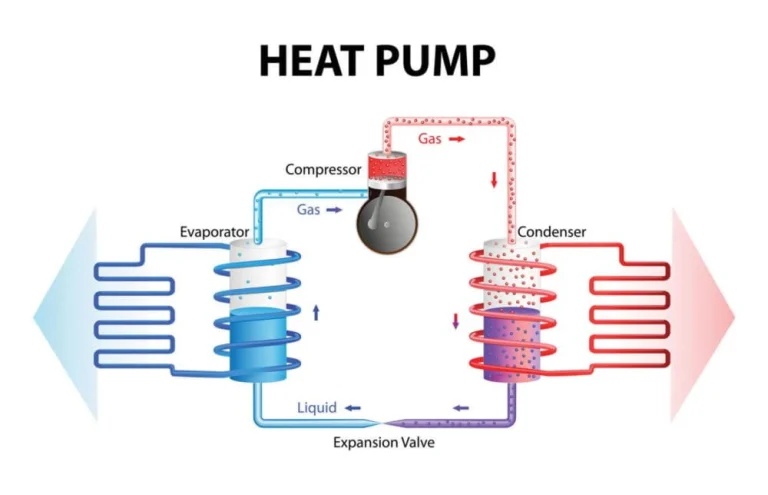Heat Pump Installers
Installation Of Heat Pumps In The UK
Heat Pump Installation Service
Are you thinking about getting a Heat Pump installed? Here at Heat Pump Installers, you can find all the information you need to find the right heat pump to install. With four different types of heat pumps available including Air Source Heat Pumps, Ground Source Heat Pumps, Hybrid Heat Pumps and Ductless Mini-Split Heat Pumps, we simplify the process of finding and installing heat pumps.
How Much Would It Cost To Install A Heat Pump?
As you may know, heat pumps aren’t cheap. According to the Energy Saving Trust, a typical air source heat pump installation will cost about £6,000 – £18,000, whereas a ground source heat pump installation will cost roughly £8,000 – £35,000 depending on the amount of heat required. If you’re thinking about getting a heat pump installed, then you may be eligible for a grant or funding to help with the cost.
The Renewable Heat Incentive (RHI) is a UK Government scheme set up to encourage the uptake of renewable heating systems such as air source and ground source heat pumps. The Domestic Renewable Heat Incentive (d-RHI) offers payments to eligible UK households who install renewable heating systems. If you’re thinking about getting a heat pump installed, then you may want to check if you’re eligible for the RHI.
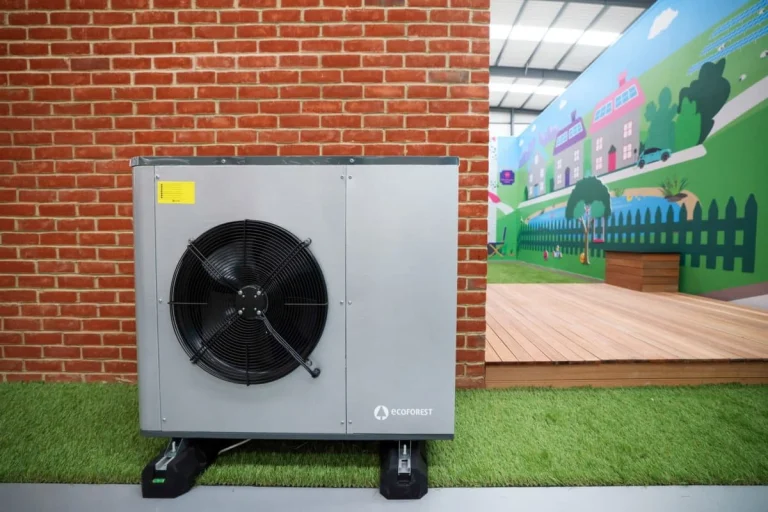
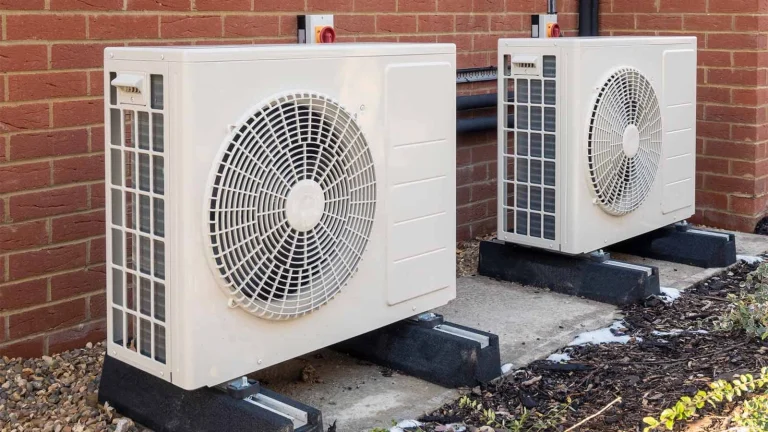
Are Heat Pumps Worth Installing?
Heat pumps are unquestionably worthwhile since, as the mechanism behind simply moving heat from one area to another without generating it and the government assisting you in your transition towards a green energy solution, they save you money on your power bills in the long run. Heat Pump Installers can help you to choose and install the right heat pump for your needs.
What Are The Benefits Of Installing A Heat Pump?
There are many benefits to installing a heat pump, not only will you be making savings on your energy bills, but you will also be doing your bit for the environment. Heat pumps emit far less carbon dioxide than traditional fossil fuel boilers, making them a much more environmentally friendly option.
Heat Pump In A Garden
Can I Install My Own Heat Pump?
No, a heat pump is almost the same as installing central heating. You would not try to install a boiler without being on the Gas Safe Register, it is the same for installing heat pumps. Heat pumps can be connected to the existing heating network and electricity mains in your house, you need qualified engineers to install a heat pump.
Do Heat Pumps Use A Lot Of Electricity?
Heat pumps use electricity to operate, but it’s a small amount. Modern heat pump systems can convert three or four times more thermal energy into heat than they consume in electrical energy. This means that for every unit (kWh) of electricity used to power the heat pump, three or four units of heat are produced.
What Size Heat Pump Do I Need For My House?
The size and type of your home, as well as how well insulated it is, will influence this. If you have a 2,000-square-foot house, the guideline of thumb suggests you should install a 60,000 BTU heat pump. At Heat Pump Installers our team of specialists can help you pick the best heat pump for your requirements.
UK Installation Service
How Long Does It Take To Install A Heat Pump?
The installation procedure for a Heat Pump can range from 3 to 4 hours for a basic back-to-back installation (for example, indoor and outdoor units located on either side of the same wall and effectively back-to-back). It might take anything from a few hours to a full day to install larger, more complex systems.
Where Is The Best Place To Install A Heat Pump?
The optimum place for a heat pump condenser is usually in the shade, away from direct sunlight. The condenser should also be placed on the side or rear of the home, away from trees and bushes (which might cause blockage.) The compressor part of the heat pump will make a low humming noise, so it’s best to keep it away from areas where you spend a lot of time.
What’s The Best Type Of Heat Pump?
The ideal system would be a hybrid or bivalent heat pump that operates in the spring, summer, and fall when the weather is nice (maximum efficiency) and a conventional boiler that runs in the winter. If you’re looking for a heat pump to use all year round, then an air source or ground source heat pump might be the best option.
Heat Pump Installers
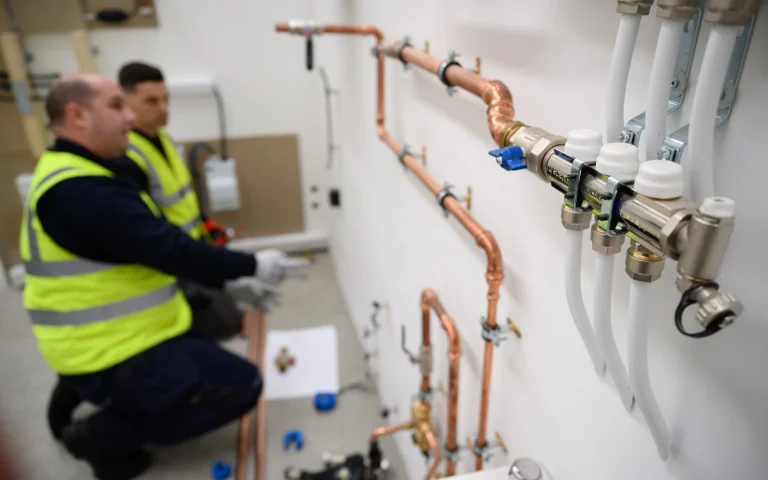
Is Installing A Heat Pump Difficult?
Installing a heat pump is more difficult than it appears. They’re easy to use, but they have a lot of moving components. You shouldn’t try an installation on your own unless you’ve gotten HVAC training and experience. Even the most experienced professional can make errors. Improper installation is the number one cause of heat pump failure.
Can A Plumber Install A Heat Pump?
Our Air Source heat pump installers are also fully licensed plumbers, and in some cases, they may cover other sanitary and plumbing installation services as part of the contract. The air source heat pump system will also be commissioned by the installer, who will provide a handover along with an explanation of how it all works.
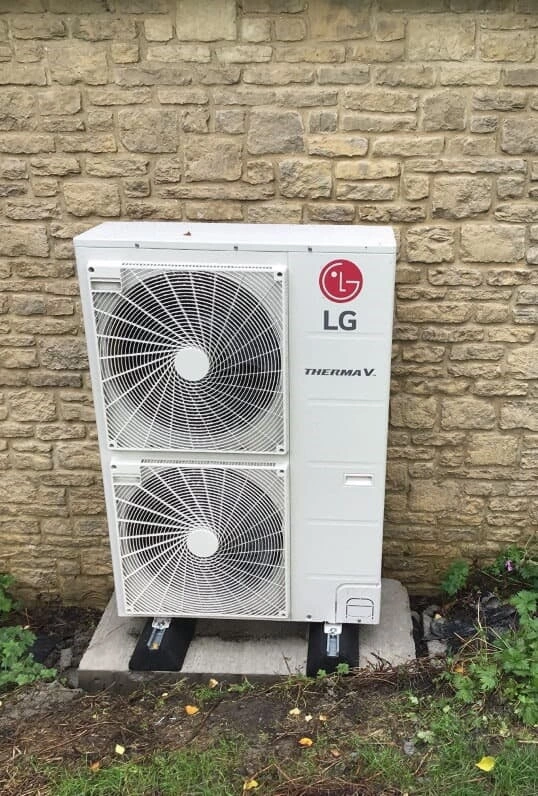
Can Heat Pumps Be Installed Anywhere?
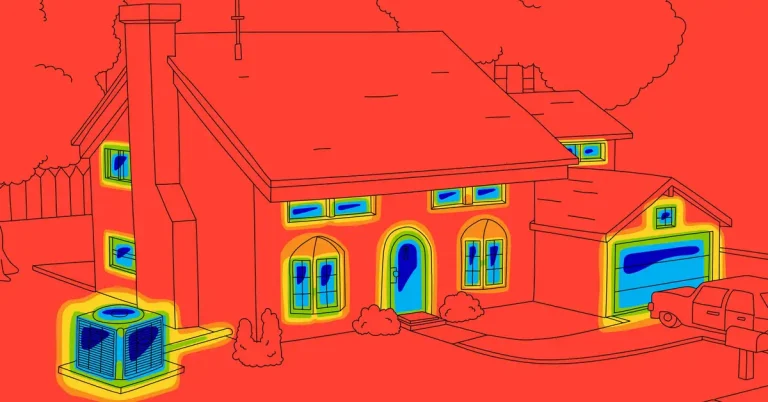
Do You Need A Heat Pump For Every Room?
Ductless Heat Pumps are often confused with air conditioning, but they do not need an air handler or “head” in every room. A single-head system, when appropriately sized, can heat and cool up to 1500 square feet or more, depending on the size of your home’s walls and doors. Our ductless mini-split heat pumps installation service will install a wall-mounted ductless system is the most energy-efficient way to heat and cool your home.
Do I Need A Permit To Install A Heat Pump?
No, you do not need a permit to install a heat pump, as well as any other HVAC equipment. Ground source heat pump installations may require the approval of your local building regulation inspector if it’s a listed building.
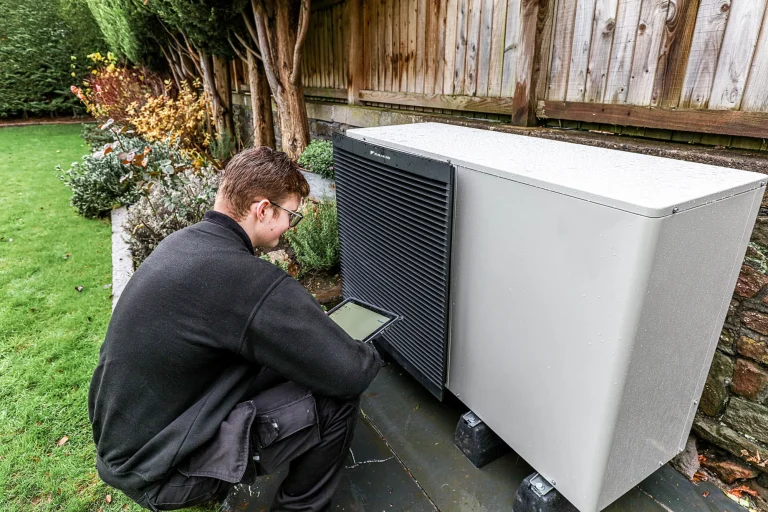
What Is Involved With Installing A Heat Pump?
The installation will involve an outdoor section and an indoor section, so make sure there is enough space inside as well. Once both units are fitted onto their mountings, refrigerant and drain hose pipes are connected and then insulated, both inside and out. A Hybrid Heat Pump Installation can be a little bit more changeling.
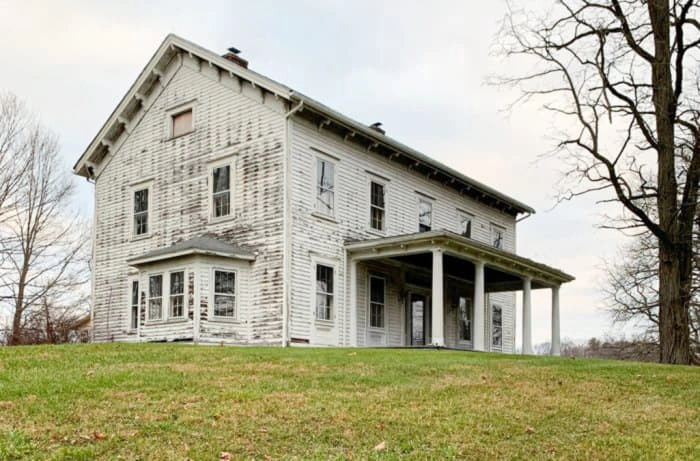
Can Heat Pumps Be Installed In Old Houses?
Heat pumps may be installed in almost any house, but there are certain issues to consider, particularly with insulation. To operate at its peak efficiency, your home must be well insulated to prevent as much heat from escaping as feasible. If you live in an old home that is not well insulated, it may be more cost-effective to insulate your home first and then install the heat pump. Our Heat Pump FAQ covers this and other questions in more detail.
What Is A Heat Pump And How Does It Work?
Heat is transferred from one location to another by heat pumps. Air source heat pumps move heat between the air within a home and the air outside of it, whereas ground source heat pumps (known as geothermal heat pumps) move energy between the air inside a house and the earth outside of it. The heat that is being transferred is used to heat a home in the winter and cool it in the summer. Our Heat Pump Installer Near Me will be on hand if you need a better explanation.
